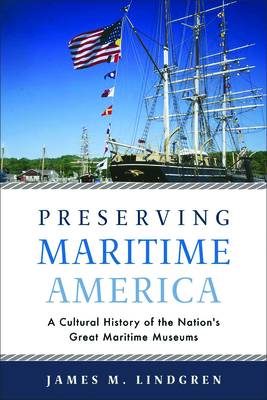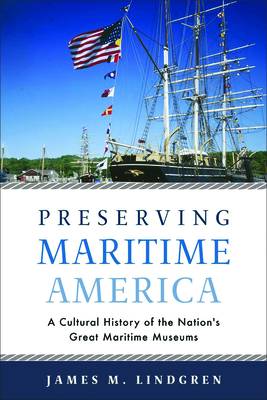
- Retrait gratuit dans votre magasin Club
- 7.000.000 titres dans notre catalogue
- Payer en toute sécurité
- Toujours un magasin près de chez vous
- Retrait gratuit dans votre magasin Club
- 7.000.0000 titres dans notre catalogue
- Payer en toute sécurité
- Toujours un magasin près de chez vous
Preserving Maritime America
A Cultural History of the Nation's Great Maritime Museums
James M Lindgren
46,95 €
+ 93 points
Format
Description
The United States has long been dependent on the seas, but Americans know little about their maritime history. While Britain and other countries have established national museums to nurture their seagoing traditions, America has left that responsibility to private institutions. In this first-of-its-kind history, James M. Lindgren focuses on a half-dozen of these great museums, ranging from Salem's East India Marine Society, founded in 1799, to San Francisco's Maritime Museum and New York's South Street Seaport Museum, which were established in recent decades. Begun by activists with unique agendas-whether overseas empire, economic redevelopment, or cultural preservation-these museums have displayed the nation's complex interrelationship with the sea. Yet they all faced chronic shortfalls, as policymakers, corporations, and everyday citizens failed to appreciate the oceans' formative environment. Preserving Maritime America shows how these institutions shifted course to remain solvent and relevant and demonstrates how their stories tell of the nation's rise and decline as a commercial maritime power.
Spécifications
Parties prenantes
- Auteur(s) :
- Editeur:
Contenu
- Nombre de pages :
- 352
- Langue:
- Anglais
- Collection :
Caractéristiques
- EAN:
- 9781625344632
- Date de parution :
- 26-11-19
- Format:
- Livre broché
- Format numérique:
- Trade paperback (VS)
- Dimensions :
- 152 mm x 226 mm
- Poids :
- 453 g

Les avis
Nous publions uniquement les avis qui respectent les conditions requises. Consultez nos conditions pour les avis.






